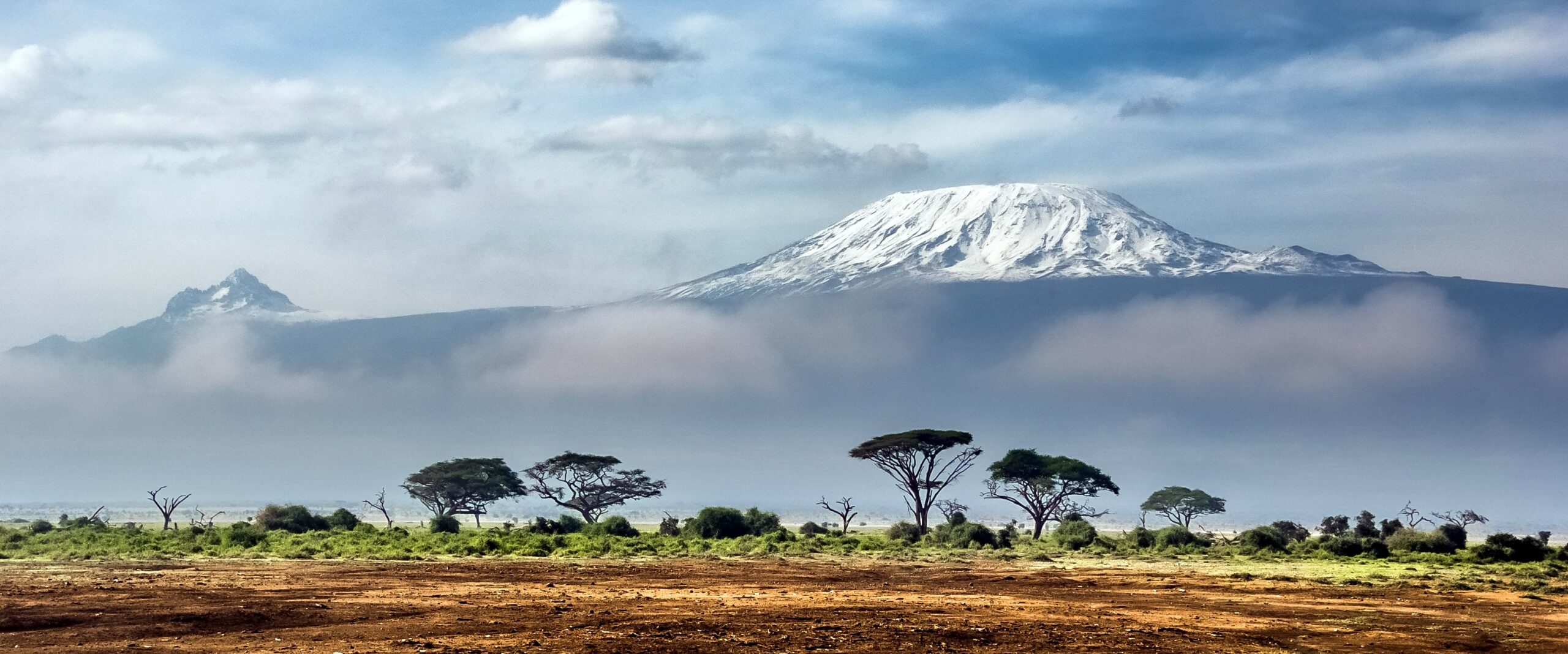Service categories
Location
Mount Kilimanjaro National Park

Mount Kilimanjaro National Park
Monday
8:00 am - 6:00 pm
Tuesday
8:00 am - 6:00 pm
Wednesday
8:00 am - 6:00 pm
Thursday
8:00 am - 6:00 pm
Friday
8:00 am - 6:00 pm
Saturday
8:00 am - 6:00 pm
Sunday
8:00 am - 6:00 pm
July 1, 2025 12:06 am local time
At 5,895 m, Kilimanjaro is the highest point in Africa. This volcanic massif stands in splendid isolation above the surrounding plains, with its snowy peak looming over the savannah. The mountain is encircled by a mountain forest. Numerous mammals, many of them endangered species, live in the park.
Kilimanjaro National Park covering an area of some 75,575 ha protects the largest free-standing volcanic mass in the world and the highest mountain in Africa, rising 4877m above surrounding plains to 5895m at its peak. With its snow-capped peak, Kilimanjaro is a superlative natural phenomenon, standing in isolation above the surrounding plains overlooking the savannah.
Criterion vii: Mount Kilimanjaro is one of the largest volcanoes in the world. It has three main volcanic peaks, Kibo, Mawenzi, and Shira. With its snow-capped peak and glaciers, it is the highest mountain in Africa. The mountain has five main vegetation zones from the lowest to the highest point: Lower slopes, montane forest, heath and moorland, alpine desert, and summit. The whole mountain including the montane forest belt is very rich in species, in particular mammals, many of them endangered species. For this combination of features but mostly its height, its physical form and snow cap, and its isolation above the surrounding plains, Mount Kilimanjaro is considered an outstanding example of a superlative natural phenomenon.
Kilimanjaro National Park, established in 1973, initially comprised the whole of the mountain above the tree line and six forest corridors stretching down through the montane forest belt. At the time of inscription in 1987, the main pressures affected mostly the forest reserve which acted as a buffer zone to the park. The World Heritage Committee recommended extending the national park to include more areas of montane forest.
The rainy season in Tanzania is twice a year, from the end of March to the end of May, and again from November to mid-December. The wet ground and clouds make for difficult trekking and less vision at the summit.
The best conditions are in January and February, as well as August and September, although any time outside the rainy season will work well.
March and October offer less crowded hikes as people fear the rains could come early. The period right after a rainy season can also hinder vision as clouds can often linger for much longer. Sometimes you are just out of luck and the weather will be too bad to even attempt to summit.
We recommend waking up early to get the best views.
While on the mountain, you will either stay in tents or huts. Huts are exclusive to the Marangu route, so this might be a decisive factor in your planning. Your trekking team will be responsible for organizing your gear and equipment. The tent quality will much depend on their services and how much money you are willing to pay. Before starting your trek, you will normally spend a few days in Moshi (or Arusha) to start acclimatizing and sleep off any jet lag.
The town of Moshi is traditionally the starting point for climbing Kilimanjaro. It is also possible to start from Arusha, known as the safari capital of Tanzania. Arusha is about 2 hours away from Moshi. If your trip is in combination with a safari to the north, staying in Arusha can be a good option. Both towns are only a short distance from Kilimanjaro Airport (JRO). You can easily reach Kilimanjaro Airport from Europe with a stopover in Amsterdam (KLM), Addis Ababa (Ethiopian Airlines), or Doha (Qatar Airways). From the airport, you can arrange for a driver to pick you up and take you to the hotel with a beautiful view.
Add a review